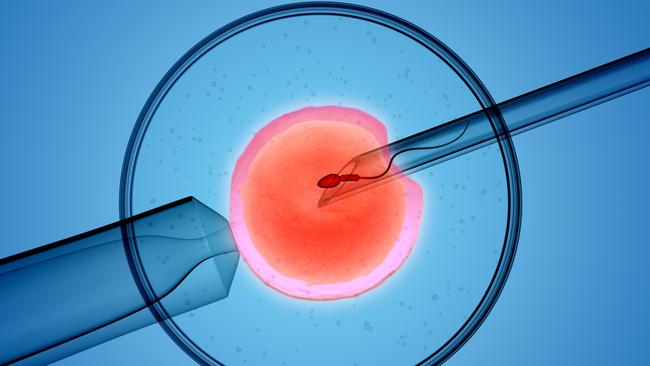IVF experts urge men to consider freezing sperm to beat ageing reproductive clock
The body clock is ticking and it’s not just women who need to be concerned with new research finding men over 40 who undergo IVF have a greatly reduced chance of success.
VIC News
Don't miss out on the headlines from VIC News. Followed categories will be added to My News.
IT IS not just women who need to be conscious about their reproductive “clock” ticking.
New research has found men over 40 that undergo IVF have a significantly lower chance of success, even when their female partner is much younger.
The findings have prompted fertility researchers to suggest younger men consider freezing sperm in a bid to protect their future aspirations of starting a family.
It comes as new statistics show that, in every age range between 35 and 55, more Australian men are having children, despite the small but increased risk that this has on the health of the pregnancy and the child.

While maternal age remains the significant factor in IVF success, Melbourne IVF clinical research manager Franca Agresta said its research — to be presented today at the Fertility Society of Australia’s annual conference in Hobart — showed men also needed to consider their reproductive clock.
The team from Melbourne IVF, University of Melbourne and Royal Women’s Hospital analysed pregnancy rates of 1400 IVF single-embryo transfers over five years, comparing men aged under and over 40. All women were aged under 35.

Younger men’s chance of pregnancy success was 39 per cent compared to 26 per cent in men over 40, with an average age of 44 years.
“It is a significant difference; it shows reduced male fertility is more than low sperm count,” Ms Agresta said.
“It’s potentially the ageing effects on sperm quality that we can’t see, such as DNA damage.”
Ms Agresta said just as men froze sperm ahead of cancer treatment or deployment for military service, the findings suggested other men could benefit from elective freezing.
“We offer egg freezing to women and it’s a much simpler process for men,” she said.
Dr Nicole McPherson, from the University of Adelaide’s Robinson Research Institute, will tell the conference today that, while there was a “very low relative risk, there is an increased risk” of advanced paternal age affecting the health of the pregnancy and the child’s future health.
In men over 45 years, their partner has a 30 per cent higher chance of gestational diabetes and the child is more likely to have a birth defect, childhood cancer or psychiatric disorder.
“The biggest hit from advanced paternal age is that the genetic material the sperm passes on is damaged,” Dr McPherson said.
“It’s the same message we give women: men shouldn’t delay having kids.”


